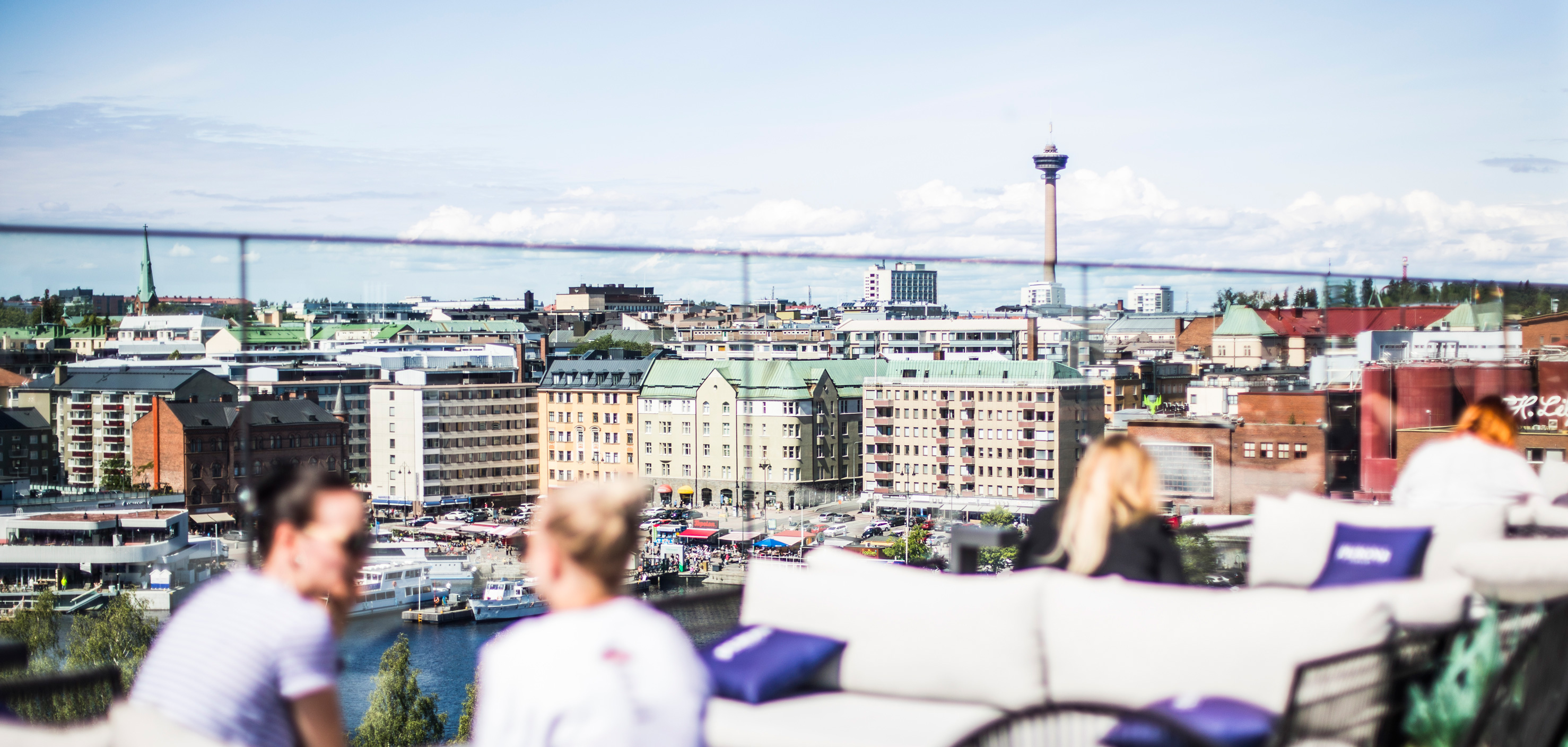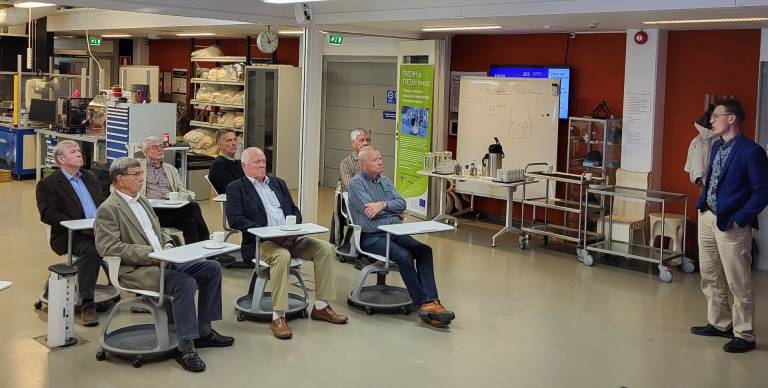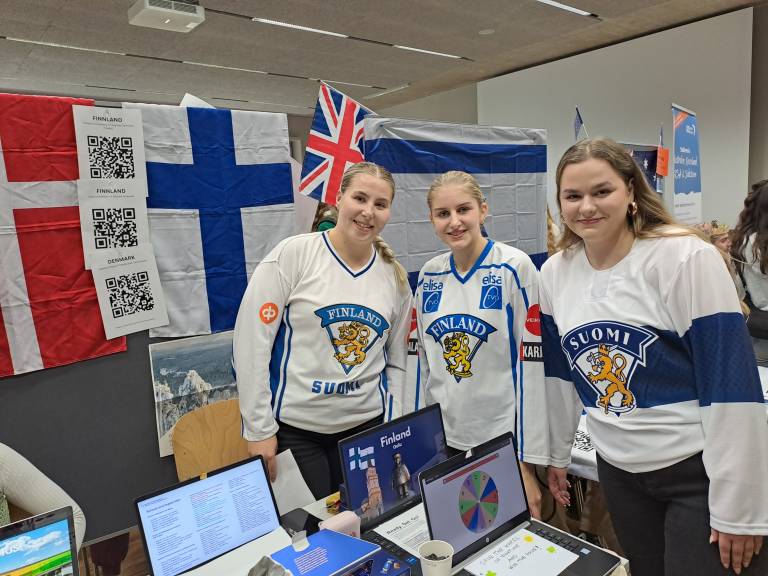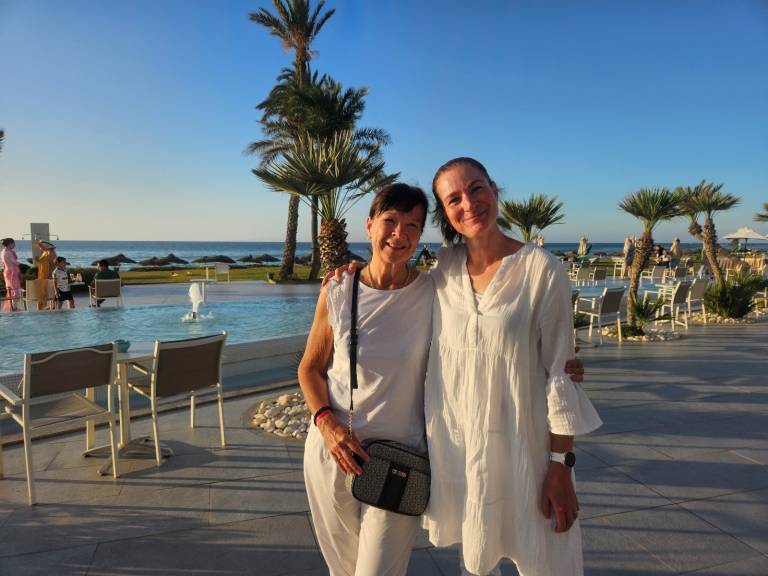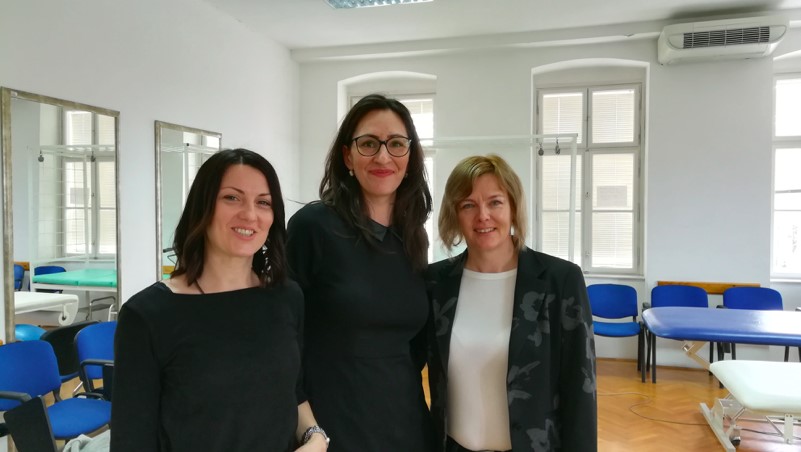
Tampere University of Applied Sciences (TAMK) has an Erasmus+ exchange agreement with College of Applied Sciences “Lavoslav Ružička” in Vukovar. Vukovar is a small inland city in Croatia, on the river Danube. During the 1991 Croatian War of Independence, Serbian troops destroyed the infrastructure, massacred several hundred citizens and expelled over 20000 inhabitants. Nowadays most of the city has been renovated with the help of the EU, but the population has not recovered and young people are moving away for better job opportunities.
“Lavoslav Ružička” is a small college. Circa 1000 students are studying administration, commerce or physiotherapy. Graduate specialization studies are available in preventive physiotherapy. For most students, studying is free of charge. Part-time students pay 1250 € annually. The facilities of the college are modern; It has, for example, a well-equipped gym and a hotel-like student dormitory.
Vesna Šeper (Fig. 1) is a lecturer in physiotherapy in Vukovar. She has visited TAMK twice. This spring we made a return visit. Three of our physiotherapy students are currently in Vukovar, and I was there one week as a teacher at the end of March. All of us received a very warm welcome, and the Erasmus coordinator Karolina Novinc (Fig. 1) of the college arranged everything perfectly. We even had an interview with the local radio channel (Fig. 2).
The student exchange is executed at the local hospital clinic and at the hospital wards. The role of physiotherapists and physiotherapy students differs in some respects from Finland: In Croatia, medical doctors prescribe more precisely the content of physiotherapy and the physiotherapy students mainly observe. In Finland, a physiotherapist receives often only the patient’s medical diagnosis from the doctor and everything else is left to the therapist. Also, physiotherapy students are given more responsibility, and they can participate early on to the examination of the patient and the execution of the therapy.
As an exchange teacher, I gave lectures in Vukovar about Exercise Therapy and Pain Science. During and after the lectures we had good discussions of the profession with the local physiotherapy students and teachers. I experienced genuine hospitality and learned that the academic level of the college is high. Many of the teachers are involved in research and are doing their PhDs. On the other hand, the small college and the distantly located city are not very attractive to new students. The “Lavoslav Ružička” college could benefit from an advertisement campaign, of which Finnish universities have a lot of experience. I also saw a lot of potential in the city: developing public transport system and the banks of Danube, for example, would increase the attractiveness. Perhaps TAMK could help to brand the college and the city.
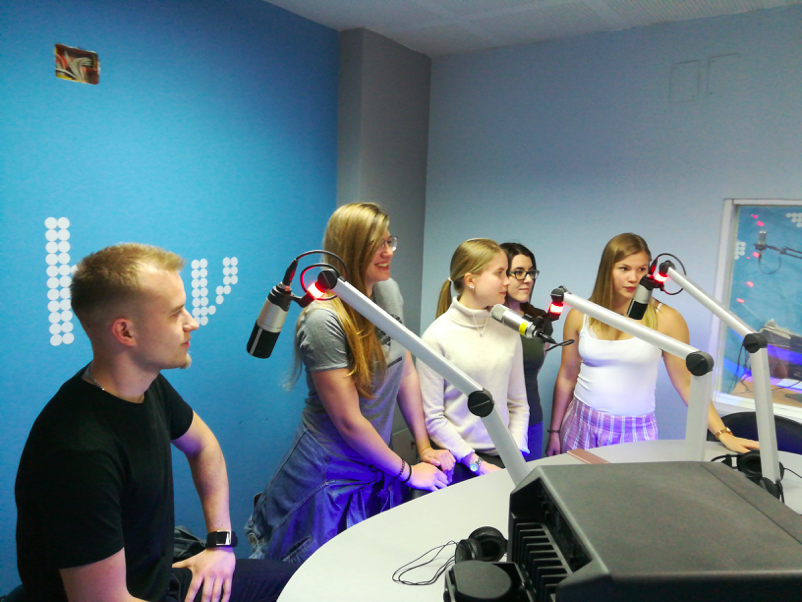
Text and photos: Ilkka Piiroinen, Senior Lecturer, TAMK

